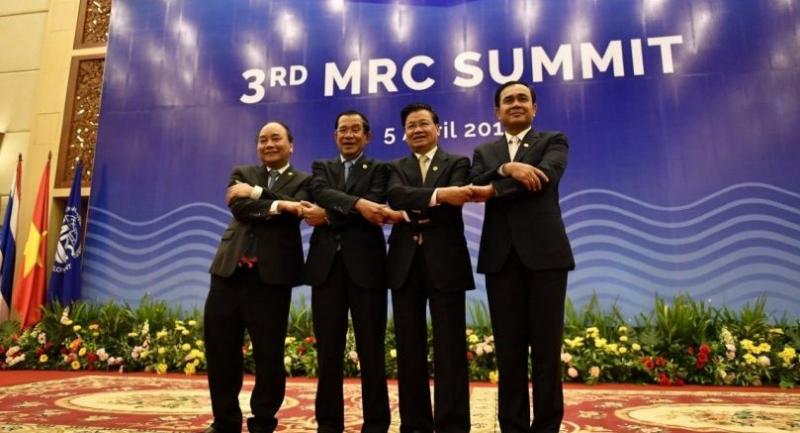Pact calls for talks before major Mekong projects

LEADERS OF the lower Mekong basin countries – Thailand, Laos, Cambodia and Vietnam – agreed yesterday to continue implementing rules and procedures for water use under the Mekong River Commission (MRC) in order to regulate controversial projects on Southeast Asia’s longest river.
The agreement concluded the third Mekong River Commission summit yesterday.
Construction of dams on the mainstream of the Mekong – including those in Pak Beng, Xayaburi and Don Sahong in Laos – are strongly opposed by local residents and downstream countries due to their environmental and social impacts. Studies have also indicated that the dams pose a threat to food security in the region.
The MRC took the projects through its “prior consultation process” under the 1995 Mekong Agreement as it sought the opinions of all stakeholders. The procedure was deemed a success for the MRC by some observers, as many hydropower projects were modified to be more environmentally friendly, though failing to satisfy many local residents.
Thai Prime Minister Prayut Chan-o-cha, Cambodian Prime Minister Hun Sen, Laos Prime Minister Thongloun Sisoulith and Vietnamese Prime Minister Nguyan Xuan Phuc attended the summit yesterday in Siem Reap. The Siem Reap Declaration issued after the meeting said “the learnt experiences of the prior consultation process for the three proposed mainstream hydropower projects are vital for the management of the Mekong River basin”.
Hun Sen, whose country hosted the summit, said: “I would like to reaffirm our solidarity and our highest political commitment and support to the effective implementation of the 1995 Mekong Agreement.”
Prayut said Thailand, whose private companies are involved in construction of dams in the river, is ready to cooperate with the MRC and other members to manage the Mekong for sustainable use. Thailand gives importance to disaster management and readiness to deal with climate change, he said. Proposed projects need to balance their benefits and environmental implications, Prayut said.
However, the declaration said there remain significant challenges for the health of the Mekong ecosystem and community needs. The long list included rapid economic and population growth; increased demand for water, food and energy; urbanisation; industrialisation; the loss of environmental assets; preserving wetlands and natural fisheries; deforestation; floods and droughts; and the risks to biodiversity and people’s livelihoods and assets.
These issues are further compounded by the effects of climate change on top of past and future development projects along the river and its tributaries.
The surge in development along the river highlights the increasing need for a focus on sustainability and ensuring the coordinated operational management of tributary and mainstream water-resource development projects, noted the declaration.
Prayut and Hun Sen met on the sidelines of the summit to discuss bilateral ties, including boosting trade, opening more border checkpoints and connecting rail lines.
